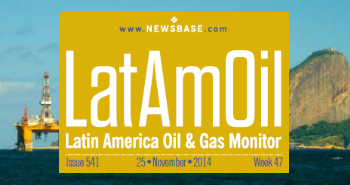Unpacking the return of Venezuela oil sanctions
The United States has decided not to renew General Licence 44, which previously authorised transactions linked to Venezuela's lucrative oil and gas sector, rebuking President Nicolás Maduro's failure to make good on his promise of allowing “an inclusive and competitive election.” This highly anticipated move came just six months after Washington relaxed restrictions in a bid to foster hopes for democratic progress in the OPEC nation.
"This means that it again becomes illegal for US-based companies to deal in Venezuelan oil," Rystad Energy Senior Vice President Jorge Leon told Rigzone, commenting on the implications of the decision.
Venezuela's oil production rebounded following the sanctions waiver, with both the International Energy Agency and the US Department of Energy forecasting a return to 1mn barrels per day (bpd) by the end of 2024. This marks a notable increase from the 690,000 bpd recorded in 2022. However, these projections assumed that the relief measures would be extended beyond the April 18 deadline.
“Production is now estimated to plateau at around 910,000 bpd this year then gradually decline to 890,000 bpd next year,” Leon said.
The recent measures essentially revert US policy to its pre-Barbados agreement state, rendering it unlawful for American firms to engage with Venezuela's state-owned oil producer, Petróleos de Venezuela S.A. (PDVSA), without explicit authorisation from the US Treasury Department.
However, Leon noted that a 45-day grace period has been granted to allow companies to wrap up their operations in an orderly manner. Despite this extension, new business deals or investments will not be greenlighted during this period.
Leon underscored several key points in the update, pointing out that Chevron – the leading contributor to Venezuela's recent growth – remains allowed to produce and export volumes to the US under General Licence 41. This separate authorisation, granted in November 2022, remains in effect. Chevron's production has already reached 170,000 bpd and aims to reach 200,000 bpd by year-end.
Additionally, Leon highlighted the US Department of State's willingness to consider case-by-case requests by companies for special licences to operate in Venezuela beyond the wind-down period. Still, the fate of existing authorisations issued to European majors Repsol, ENI, and Maurel & Prom hangs in the balance, as they await clarification from US authorities.
The decision to reinstate sanctions was accompanied by a statement from the US Department of State, claiming that Venezuela has not fulfilled commitments made under the Barbados Agreement, aimed at facilitating a “fair and internationally monitored presidential election in 2024.” The country’s opposition, led by Maria Corina Machado, has faced obstacles, including the barring of Machado from participating in the presidential race and hurdles in registering her substitute, Corina Yoris.
Despite some progress, concerns persist regarding Maduro's commitment to democratic principles, prompting the US to maintain pressure on his regime.
As the situation evolves by the day, the fate of Venezuela's oil sector remains uncertain, with potential implications for global oil markets – including a shift in purchases from India to China – and geopolitical dynamics shaped by ongoing conflicts in the Middle East and Ukraine.


Follow us online